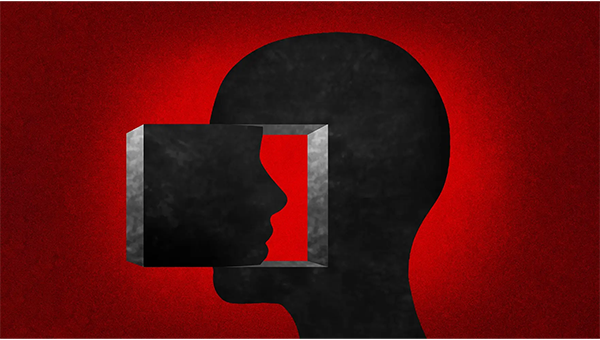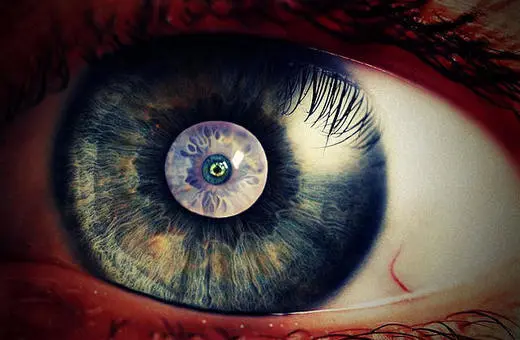From modern figures like Sam Harris to philosophers like David Hume, many claim that the self is an illusion. However, what this claim amounts to continues to puzzle and confuse us. The reality of some kind of self seems self-evident. And yet, many appear sure the self is illusory. Contributing Editor Ricky Williamson argues that both things are true: the self exists, and it is an illusion. The answer depends on our understanding of the structure of consciousness and the nature of the self in question.
For more on this topic, the HowTheLightGetsIn festival will be debating The Structure of Consciousness, featuring Julian Baggini, Susan Schneider, Karl Friston, and Alex O'Connor this September 21st. Book your tickets now.
From spiritualists to neuroscientists to philosophers, it is common to hear the argument that the self is an illusion. But what is this self? And is it indeed an illusion?
On the face of it, of course I exist, and therefore of course this I, which is this self, exists. I am here. I am writing. The self is. The self exists.
But then what is this “I,” this self? Descartes famously stated, “I think, therefore I am.” Here lie many of our answers—but also much of our confusion. “I think, therefore I am.” I am thinking, there is thought, therefore there is an I. But if I am the one thinking in the first place, isn’t this a circular argument? It is—unless the “I” at the start of the sentence is a different “I” from the one at the end. As we will soon find, this is the case! They are different “I”s.
Descartes’ famous sentence could have many meanings, depending on how we understand some of the words in it. “Thinking” has two meanings. One is the linguistic process of thoughts appearing within consciousness. The thought “I need to cook dinner later,” the thought “God, I hate Descartes!”… this stream of linguistic thoughts that appear within consciousness is one definition of what thinking is. And we can expand this to include not just linguistic thoughts, but also imagined images or beings (like Descartes’ imagined evil demon), and emotions like anger.
But notice how I worked the word “consciousness” in there. There lies the second meaning of the word “thinking.” For some, to “think” means to be conscious, to have “thought” means to have conscious awareness. And we can have conscious awareness of things like linguistic thoughts, but also awareness of things like sights, sounds, touch, and objects. Some call the blank screen of consciousness on which all phenomena appear “thinking” and “thought.”
___
If we use our first definition of thinking, then Descartes’ “I” exists because it can think linguistic thoughts. If we use the second definition, Descartes’ “I” exists because it is conscious.
___
The same applies to the word “mind.” For some, mind means “the thing that thinks linguistic thoughts,” whereas for others, “mind” means consciousness.
The double meaning of these words has run amok in philosophy. Much debate revolves around people using these words in different ways, to mean different things, completely talking past each other.
And we can see that, depending on how we use the word “think” in Descartes’ “I think, therefore I am,” the sentence has radically different meanings. If we use our first definition of thinking, then Descartes’ “I” exists because it can think linguistic thoughts. If we use the second definition, Descartes’ “I” exists because it is conscious.






















Join the conversation